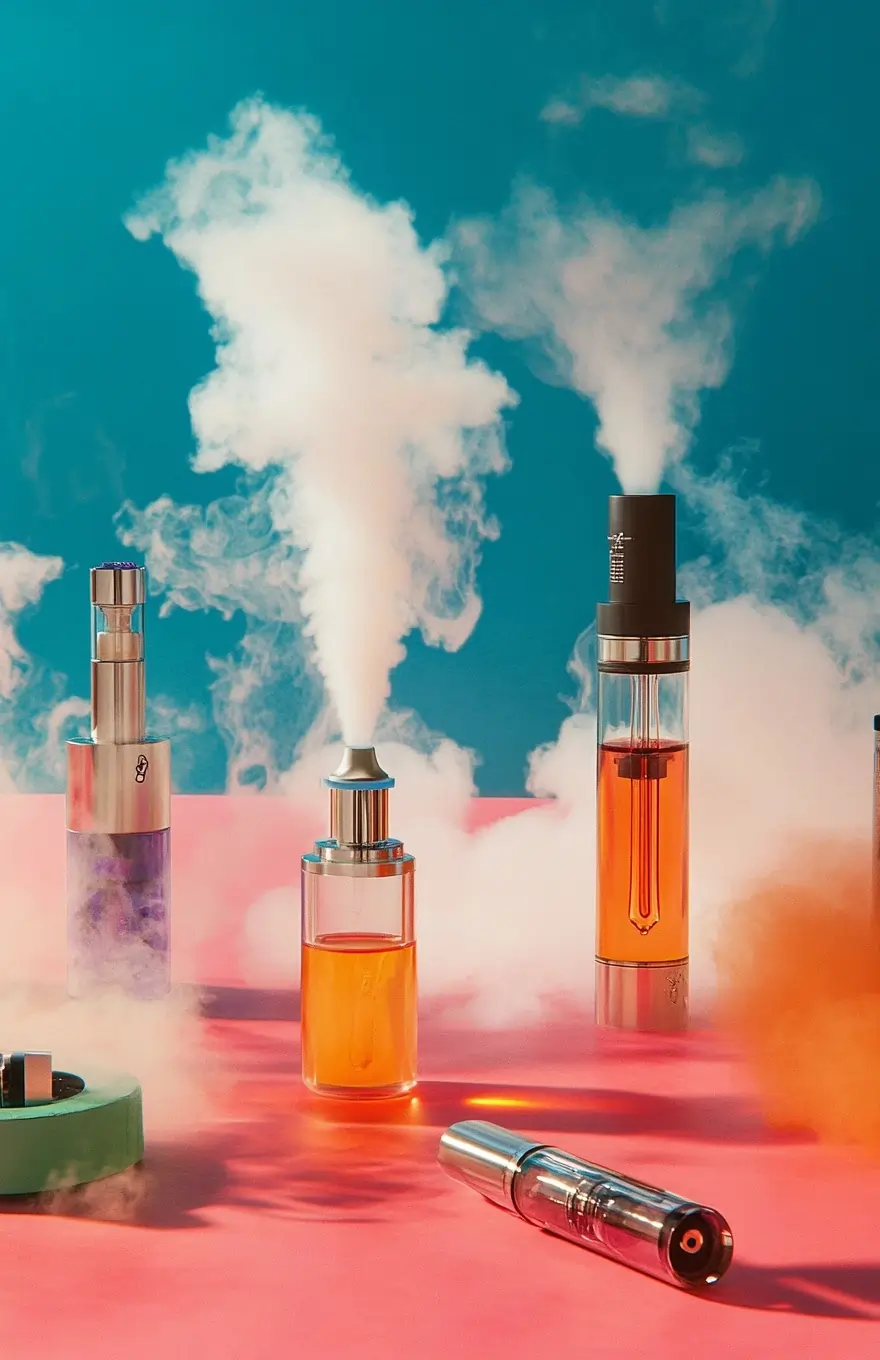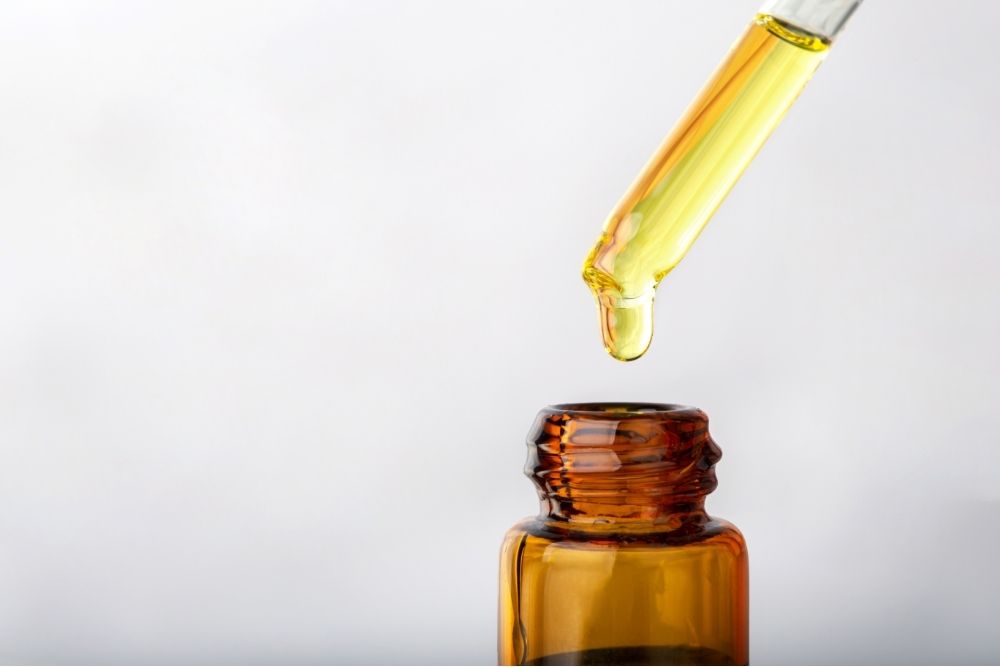

A lot of CBD companies (including us) recommend that you take CBD regularly, whether it’s every eight hours or twice a day. Basically, we want you to find a routine that works for you so you can get the best CBD experience possible. But if you’re taking CBD this often, is it possible to experience CBD withdrawal?
The answer is no! CBD is a non-psychoactive compound that won’t get you high at all. Since it doesn’t interact with your body in the same way marijuana and other drugs do, you also won’t feel any withdrawal symptoms if you decide to stop using CBD.
But how is this possible? Well, we’re here to explain a bit more about what all this means. Let’s take a closer look at what CBD oil is, what it does, and why it won’t get you high. We will also explain why CBD is able to help quit marijuana or lessen its effects!
CBD, or cannabidiol, is a phytocannabinoid found in cannabis. It’s actually one of more than 100 different natural compounds found in cannabis. CBD oil (also called tincture) is a consumable liquid containing CBD that can be dropped under the tongue, swallowed, or mixed into food and drink. Many people enjoy CBD oil because it is one of the most versatile and easy-to-use forms of cannabidiol.
CBD has become one of the most popular phytocannabinoids because it’s non-psychoactive, meaning it won’t get you high. Even though it won’t give you the negative side effects of being high (like THC does, another phytocannabinoid), it provides a lot of health and wellness benefits. That’s because CBD interacts with the receptors in your body’s endocannabinoid system (ECS).
Your ECS is what maintains your sense of balance, known as homeostasis. It includes all of your body’s major systems, including the digestive, immune, and nervous systems. Since there are cannabinoid receptors in all of these systems, CBD is able to have positive effects on a variety of your body’s physical and mental functions.
A lot of people use CBD oil to feel less stressed and more relaxed or to feel some relief from physical discomfort. It’s also known to give some people better, deeper sleep and regulate appetite. Since CBD has so many benefits, a lot of people wonder if it’s possible to get addicted to this phytocannabinoid.

CBD is not addictive. CBD doesn’t have properties that get you high or groggy. Because CBD doesn’t produce psychoactive side effects, the potential for abuse is considered pretty low (to not at all) by scientists. Unlike TCH, CBD doesn’t activate receptors in the brain that create an influx of dopamine to the area responsible for pleasure and reward.
Because CBD does not cause this flood of dopamine, users don’t get that subconscious reward response for using CBD. It’s also next to impossible to overdose on CBD. A “toxic dose” of CBD is 20,000 mg. Consuming that much CBD would be a challenge since the most mg offered in most CBD oil is 3,000 mg. And a regular dose of CBD for a 160-pound person is 40 mg (eight drops). If you do somehow take too much CBD, the most common side effects are nausea and fatigue.
THC, another phytocannabinoid, is addictive. That’s because, unlike CBD, THC does get users high. It creates that dopamine rush we previously mentioned, making people feel subconsciously rewarded for using it.
THC is the primary psychoactive compound in marijuana, meaning you can get intoxicated. Using marijuana excessively can create a form of addiction called cannabis use disorder, or CUD. Prolonged marijuana use changes how the drug interacts with the receptors and cells in your body, meaning you’ll have to consume higher and higher doses to get the desired effect.
Research has suggested that users cannot develop a tolerance to CBD oil. That’s because CBD doesn’t bind to your cannabinoid receptors in the same way that THC molecules (and other drugs) do.
It’s often recommended that you take CBD oil every eight hours or twice a day. That’s because the more consistently you take CBD, the more receptive your body will be to it. People attempting to manage discomfort or create a consistent sleep schedule will benefit the most from having a CBD oil routine.
Here is more good news! You can’t get CBD withdrawal if you stop taking it. Even if you have been regularly taking CBD twice a day for years, you shouldn’t have any withdrawal symptoms. CBD is so consistent that it’s actually possible to decrease your dose of CBD over time and still get the same benefits.
A lot of times cannabis isn’t seen as addicting or as dangerous as other drugs, and that’s for good reason. Cannabis won’t result in the severe withdrawal that more concentrated substances may cause. Though, it’s possible to develop cannabis use disorder if you excessively ingest marijuana. If you stop using marijuana, you might notice these symptoms of withdrawl:
Marijuana users will feel most of these symptoms within the first seven days of quitting this substance. Sometimes these withdrawal side effects can last up to two weeks. About 50% of people with cannabis use disorder who stop using the substance will experience these symptoms, meaning it’s pretty common.
About 30% of marijuana users will develop some form of cannabis use disorder. This is especially possible if you started smoking at a young age.
Between 1995 and 2002 there has been a significant increase in demand for cannabis use disorder treatment. The number of people using cannabis every day or multiple times a day has increased. People who seek treatment are often those that have used cannabis for over 10 years.
Treatment for cannabis dependence is often through the use of medication or psychology. Some people get treatment through peer support or 12-step rehabilitation programs. Others go through a detox service.

A lot of marijuana users will often keep CBD oil around to reduce the desire of being high. THC binds directly to the receptors in our body and brain, but CBD does not. Instead, CBD blocks THC from interacting with the receptors by essentially getting in its way.
CBD is known to manage the side effects of THC withdrawal. That’s because CBD is often considered a “mirror image” of THC. A 2010 study showed that CBD has the opposite side effects of TCH when dealing with our cognitive processes. Basically, CBD may reduce the adverse side effects of THC while and lessen the side effects of withdrawal when quitting.
While more research is still being done on CBD and its side effects, it’s pretty safe to say that CBD is, well, safe! It doesn’t get you high and doesn’t have addictive qualities. You can’t overdose on it and a “toxic dose” is almost impossible to try even if you wanted to (we don’t recommend giving it a shot!).
CBD can also help reduce marijuana’s negative side effects. Moreover, it can keep you from feeling the negative withdrawal side effects if you decide to stop using marijuana. It’s all thanks to the unique way CBD interacts with our body. CBD doesn’t get you high. Instead, it comes with a lot of health and wellness benefits that become even more apparent when you consistently take CBD. Luckily, you won’t experience negative effect if you decide to stop your CBD routine!